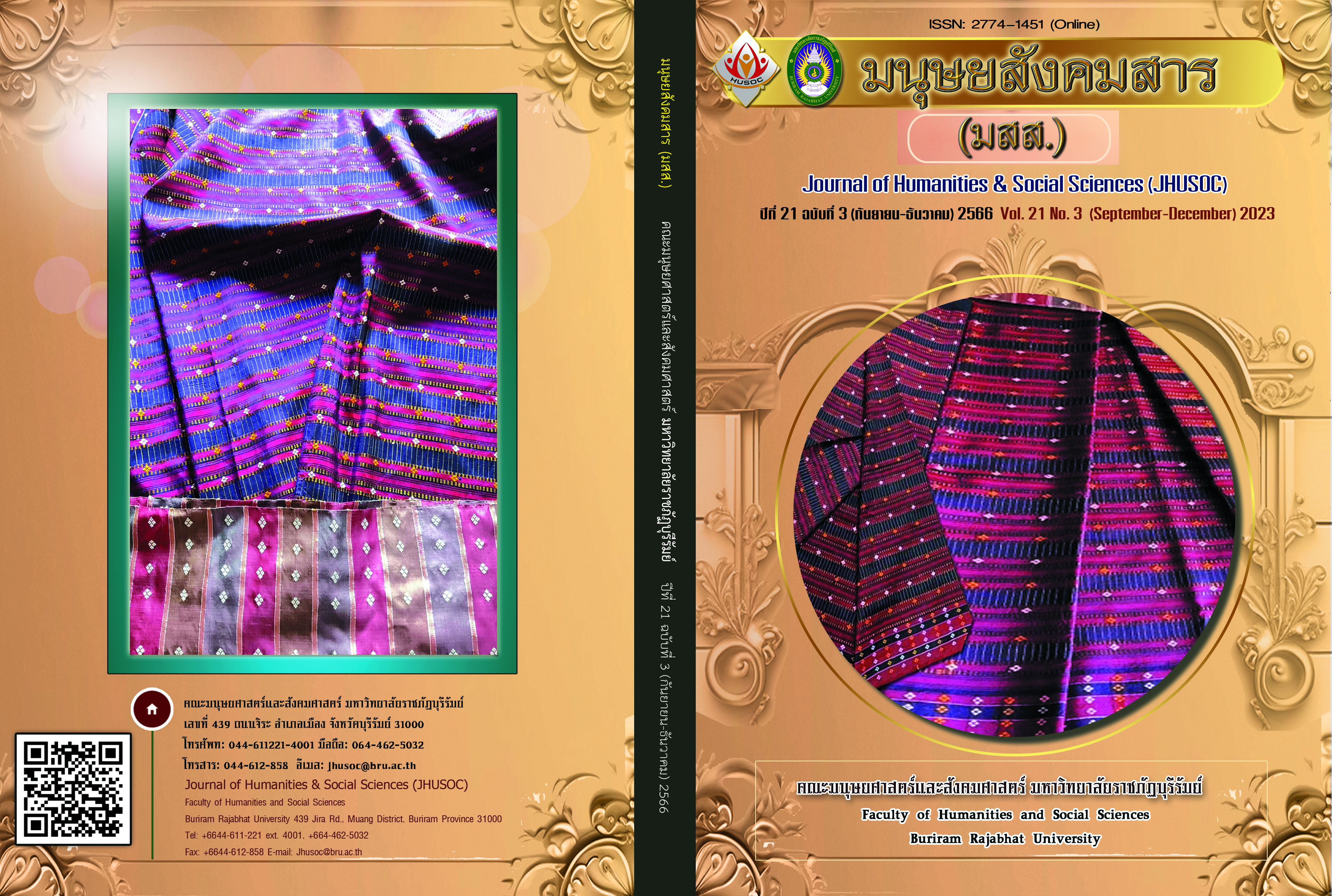ลักษณะบุคลิกภาพ การศึกษาการเป็นผู้ประกอบการ และความตั้งใจเป็นผู้ประกอบการของนักศึกษาหลักสูตรบริหารธุรกิจ
Main Article Content
บทคัดย่อ
ความตั้งใจเป็นผู้ประกอบการ คือ แรงจูงใจของบุคคลในการประกอบอาชีพในฐานะผู้ประกอบการและดำเนินแนวคิดทางธุรกิจใหม่ๆ ผู้ประกอบการมีบทบาทสำคัญในการสนับสนุนเศรษฐกิจของประเทศด้วยการสร้างความมั่งคั่งและกระตุ้น การเติบโตทางเศรษฐกิจ การวิจัยนี้มีวัตถุประสงค์เพื่อศึกษาผลกระทบของลักษณะบุคลิก ภาพ และการศึกษาการเป็นผู้ประกอบการที่มีต่อความตั้งใจเป็นผู้ประกอบการของนักศึกษา โดยใช้แบบสอบถามแบบมีโครงสร้าง และรวบรวมข้อมูลจากนักศึกษาหลักสูตรบริหารธุรกิจ จำนวน 424 คน วิเคราะห์ข้อมูลโดยใช้สถิติเชิงพรรณนาและการวิเคราะห์การถดถอยพหุคูณ สรุปข้อค้นพบได้ดังนี้ 1) การเปิดรับประสบการณ์และการมีจิตสำนึก มีอิทธิพลเชิงบวกอย่างมีนัยสำคัญต่อความตั้งใจของผู้ประกอบการ ในทางกลับกัน ไม่พบความสัมพันธ์อย่างมีนัยสำคัญทางสถิติระหว่าง ลักษณะความไม่มั่นคงทางอารมณ์ การเปิดเผยแสดงตัว และการประนีประนอม กับความตั้งใจเป็นผู้ประกอบการ 2) การศึกษาที่มุ่งเน้นการเป็นผู้ประกอบการ ซึ่งครอบคลุมทั้งการบ่มเพาะความรู้ด้านการเป็นผู้ประกอบการและประสบการณ์เชิงปฏิบัติ มีอิทธิพลเชิงบวกอย่างมากและชัดเจนต่อความตั้งใจในการเป็นผู้ประกอบการของนักศึกษา
Article Details

อนุญาตภายใต้เงื่อนไข Creative Commons Attribution-NonCommercial 4.0 International License.
เนื้อหาและข้อมูลในบทความที่ลงตีพิมพ์ในวารสารทดสอบระบบ ThaiJo2 ถือเป็นข้อคิดเห็นและความรับผิดชอบของผู้เขียนบทความโดยตรงซึ่งกองบรรณาธิการวารสาร ไม่จำเป็นต้องเห็นด้วย หรือร่วมรับผิดชอบใดๆ
บทความ ข้อมูล เนื้อหา รูปภาพ ฯลฯ ที่ได้รับการตีพิมพ์ในวารสารทดสอบระบบ ThaiJo2 ถือเป็นลิขสิทธิ์ของวารสารทดสอบระบบ ThaiJo2 หากบุคคลหรือหน่วยงานใดต้องการนำทั้งหมดหรือส่วนหนึ่งส่วนใดไปเผยแพร่ต่อหรือเพื่อกระทำการใดๆ จะต้องได้รับอนุญาตเป็นลายลักอักษรจากวารสารทดสอบระบบ ThaiJo2 ก่อนเท่านั้น
เอกสารอ้างอิง
Ahmed, M., Khattak, M., & Anwar, M. (2020). Personality traits and entrepreneurial intention: The mediating role of risk aversion. Journal of Public Affairs, 22(1), 1–15.
Ayuo, A., Kibas, P., & Auka, D. (2017). Entrepreneurship education, personality traits, and entrepreneurial intention of engineering students in technical and vocational education and training institutions in Kenya. Journal of Economics and Sustainable Development, 8(22), 148-158.
Chaiprasit, K., & Santidhirakul, O. (2017). Comparison of entrepreneurial development models between Thailand and Azores Island, Portugal. Panyapiwat Journal, 9(Special Issue), 6-17. [in Thai]
Chanthakol, P. (2019). Entrepreneurial characteristics affecting the success of service businesses in tourism industry of entrepreneurs in Khon Kaen municipality, Thailand. PSAKU International Journal of Interdisciplinary Research, 8(2), 171-179.
Hahn, D., Minola, T., Bosio, G., & Cassia, L. (2020). The impact of entrepreneurship education on university students’ entrepreneurial skills: A family embeddedness perspective. Small Business Economics, 55, 257-282.
Kerr, S., Kerr, W., & Xu, T. (2018). Personality traits of entrepreneurs: A review of recent literature. Foundations and TrendsVR in Entrepreneurship, 14(3), 279-356.
Kline, R. (2005). Principles and practice of structural equation modeling (2nd ed.). Guilford Press.
Linán, F., & Chen, Y. (2009). Development and cross-cultural application of a specific instrument to measure entrepreneurial intentions. Entrepreneurship Theory and Practice, 33(3), 593-617.
Loetnithat, C. (2023). Thai SMEs and their mission to create economic stability under the trend of change. https://tdri.or.th/2023/09/economic-sme-article/ [in Thai]
Lv, Y., Chen, Y., Sha, Y., Wang, J., An, L., Chen, T., Huang, X., Huang, Y., & Huang, L. (2021). How entrepreneurship education at universities influences entrepreneurial intention: Mediating effect based on entrepreneurial competence. Frontiers in Psychology, 12, 1-12.
McKeon, T. K. (2013). A college’s role in developing and supporting an entrepreneurship ecosystem. Journal of Higher Education Outreach and Engagement, 17(3), 85-90.
Miller, K. (2020). 10 Characteristics of successful entrepreneurs. https://online.hbs.edu/blog/post/characteristics-of-successful-entrepreneurs
Miralles, F., Giones, F., & Riverola, C. (2016). Evaluating the impact of prior experience in entrepreneurial intention. International Entrepreneurship and Management Journal, 12(3), 791-813.
Preethi, C. M., & Priyadarshini, R. G. (2018, March 8-9). The intention towards social entrepreneurship among students and its link with big 5 model [Paper presentation]. IOP Conference Series Materials Science and Engineering, Tamilnadu, India.
Puni, A., Anlesinya, A., & Korsorku, P. (2018). Entrepreneurial education, self-efficacy and intention in Sub-Saharan Africa. African Journal of Economic and Management Studies, 9(4), 492-511.
Razak, A., Zainol, Z., Muhammad, F., Hussin, M., Ramdan, M., & Yin, K. (2019). The effect of religious beliefs and entrepreneurship education on entrepreneurial actions among university students with disabilities (SWDs). International Journal of Academic Research in Business and Social Sciences, 9(7), 950-960.
Saeed, R., Mussawar, S., Lodhi, R., Iqbal, A., Nayab, H., & Yaseen, S. (2013). Factors affecting the performance of employees at the workplace in the banking sector of Pakistan. Middle East Journal of Scientific Research, 17(9), 1200-1208.
Sekaran, U. (2003). Research methods for business a skill-building approach (4th ed.). John Wiley & Sons.
Shi, B., Dai, D., & Lu, Y. (2016). Openness to experience as a moderator of the relationship between intelligence and creative thinking: A study of Chinese children in urban and rural areas. Frontiers in Psychology, 7(641), 1-10.
Slavec, A., Drnovšek, M., & Hisrich, R. (2017). Entrepreneurial openness: Concept development and measure validation. European Management Journal, 35, 211-223.
Tiasuwon, T. (2003). The relationship among five-factor model of personality, job involvement, perception of organization [Unpublished Master’s Thesis]. Kasetsart University. [in Thai]
Wongrattana, C. (2012). Techniques for using statistics for research. Thepnaramit Printing. [in Thai]
Yotongyos, M., & Sukmaungma, S. (2016). Factors affecting entrepreneurial intention of undergradate students: A case study of Bangkok University. Suthiparithat, 30(95), 103-115. [in Thai]
Zhao, H., Seibert, S., & Lumpkin, G. (2010). The relationship of personality to entrepreneurial intentions and performance: A meta-analytic review. Journal of Management, 36(2), 381-404.


